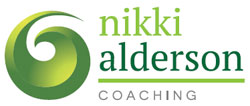A 6 minute read on the pressures of working in the legal profession, especially post-pandemic, where we seem to have enabled the encroachment of work into our personal lives even more, and 3 simple coaching strategies to help support wellbeing and help you to thrive in law.
Stress
Have you ever thought, as a high-achieving lawyer, that when under pressure you’ve just got to get on with it, because showing stress is a sign of weakness? Well if so, you’re not alone – a recent survey for the Bar Council found 2 out of 3 barristers believe showing stress is a sign of weakness.
Overwhelm
On the other hand, even when you feel it is important to achieve better balance, how about finding it hard to prioritise given the legal profession is so dominated by long, unpredictable working days and a billable hours’ culture? A recent Young Bar survey found 1 in 6 were thinking of leaving because of issues relating to their wellbeing stemming from the long working hours and lack of life balance.
Balance
Balance is such an important part of the talent retention, progression and elevation conversation, and has certainly been put under greater threat post-lockdown thanks to the insidious bleed of work into personal lives with the increase in home working, the loss of our regular daily commute and extended requirements to attend online Teams meetings. No surprise then that 2021 saw a 24% rise in calls to the Lawcare helpline from lawyers experiencing stress.
Coaching Strategies
So let me provide here 3 simple coaching strategies to help support lawyers to thrive, not just survive, at work as in life.
Strategy 1: Mindset
“Life is only as good as your mindset:” Consider yours and ask, honestly, whether it helps or hinders the achievement of balance.
Is your glass half empty or half full? Are you a worrier or a solution finder? Who would you rather have on your team in a crisis?? Some have a greater ability to cope with and adapt to change because of the way they are as individuals. Have you noticed they are those with a more positive disposition, and who adopt a growth mindset?
You can train your brain to think in a similar and more helpful way.
So if you are a “half empty” person, consider using the technique of separating feeling from fact: When you feel things are overwhelming and you CAN’T cope or find balance, look at the facts/ evidence to see when you reduced that sense of overwhelm. Appreciate your capacity to do so again. By evidencing your resilience and ability to achieve balance, you will be better able to regain a sense of perspective and calm.
Challenge yourself to reframe words and thoughts by using more positive language to once again more positively influence your outcomes. For example, when someone asks, “How are you?”, chose carefully your words in reply. Are you “busy” or “well”? Notice which feels better and provides a greater sense of balance.
Think about what you say and how you say it, to support you in the achievement of your objectives around balance. We always have a choice about how we respond to any given challenge, so sense check and ask “How do I want this moment to be?”
Strategy 2: Prioritisation/ Time Ownership
How else can order be created from chaos, then, in an effort to create more balance? Firstly, think about how you use your time and whether it is spent productively. I agree with Jim Rohn who said “You run the day or the day runs you.” If you Plan your day and put things in order of Priority, then even when last minute deadlines/ demands cause slippage, overall, you’ll still be able to keep on track more effectively. To help identify where things go in order of priorities, consider deploying the Eisenhower time ownership method: Do – Diarise – Delegate – Delete.
Then think about how to be present, fully in the moment, whether at work or at home. Check your environment supports optimum focus and concentration, wherever you are working. Is it open plan or private/ quiet? Can you move around often to take regular breaks and increase your levels of concentration/ productivity?
And then the biggie: how can you avoid distraction to become more effective, consequently achieving balance? I get that there is a tension with digital distraction here because of our heavy reliance on technology for connection, particularly since Covid, whilst risking “unhealthy” usage levels. For the times that you are engaged in work, or with other activities at home (hobbies, playing with the kids etc), ask yourself, honestly, whether you are fully present and if not, how you can avoid those unhelpful, potentially damaging, digital distractions.
Can you turn off notifications or remove social media apps off your devices? How about activating your “out of office” to provide time blocks during the working day (not only for whilst you are away) to regain a sense of control over your own day? Consider using airplane mode for those moments when you need to be fully immersed in the task at hand. Be strict about how often you sit in your inbox or scroll. Set time limits around these to avoid getting side-tracked.
Strategy 3: Boundaries
Finally, create healthy boundaries to achieve more balance. Continuing the digital distraction theme, this could be as simple as having separate mobile phones for work and whilst you are away: So important to achieve a sense of balance these days with such an increase in remote working.
Think about how to positively communicate the boundaries you need to create more balance. If that means learning to say no, think about how you communicate that well.
Firstly, consider what you are prepared to say yes to. Then assess whether the request or task in hand serves you, in order to determine whether you respond with a yes or no.
Be pro-active in communicating your needs in a positive way – let people know what you will do, as opposed to waiting to be asked then letting them what you won’t do. Your message will be received much better that way.
And don’t be afraid to practice. Saying no doesn’t always sit well with people and doing so is something of an art form which takes time to feel comfortable around and get right.
Action Taking to Achieve Balance
Let me end by encouraging you to implement these balance strategies by taking committed action, given positive intentions without positive action lead to positively nothing: What will you do, and when?
Nikki Alderson Biography
Nikki Alderson, specialist coach, speaker, author, and former Criminal Barrister:
- supports legal organisations retain female talent; and
- empowers female lawyers to achieve career ambitions.
Nikki specialises in:
- Women leadership;
- Enhanced career break returner support; and
- Workplace resilience, confidence and wellness.
She is the author of Amazon No.1 Bestseller Raising the Bar: empowering female lawyers through coaching, (https://amzn.to/3fodKQX), nominee for 2019 Inspirational Women Awards, and finalist in 2020 Women in Law Awards and 2019 International Coaching Awards.

